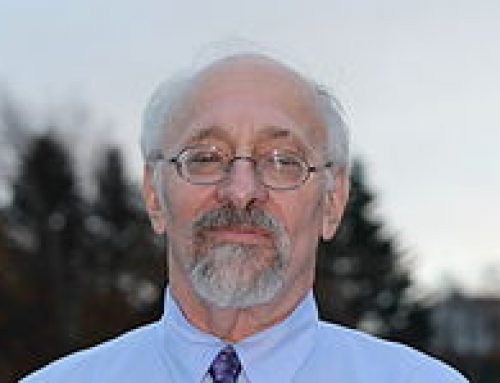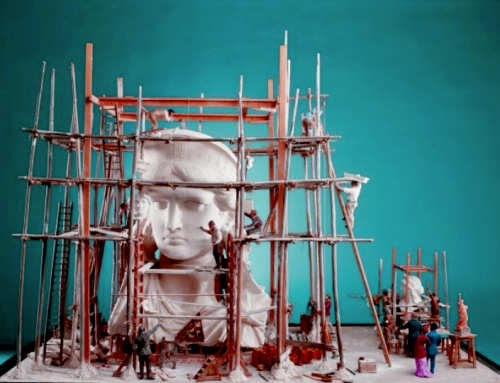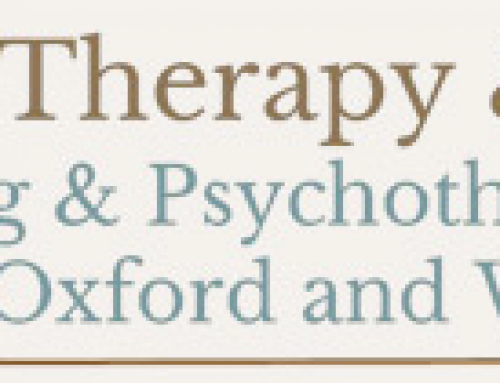A series of public workshops for couples
This series of evenings and day workshops is designed to give space to you as a couple. We invite you to invest in your relationship. In our culture that’s a rare opportunity – normally we expect ourselves to just get on, by virtue of being supposedly loving, cooperative, committed adults. But that’s an unrealistic, neglectful expectation: your relationship cannot thrive on that assumption of goodwill alone - it needs care, time and awareness, like a tree that needs tending if you want it to grow.
Generally speaking, as couples, we seem to lack the basic communication skills and psychological understanding required to make love last. They are not taught in school or anywhere else, and without them, many couples suffer or survive on scraps and compromise. As you may have noticed: a good relationship does not fall into our laps – sustainable love needs active attention.
Where do you find the psychological tools to support the growth and deepening of your relationship?
The field of therapy has rich sources of knowledge, understanding and tools that can support you as a couple. Therapy has many ideas and explanations for what goes wrong and what is needed to put things right. We want to make these sources accessible to you, so you can make informed choices and become robust in your loving as a couple.
To reach as many couples as possible, we have made these workshops especially affordable.
Michael will offer these events with the help of OTS couple therapists who will assist him in creating a safe and conducive atmosphere. It is likely that we will spend some of the time in smaller groups, to give everybody a chance to speak and get involved, if they want to.
There is a maximum of 16 places available on each event.
OTS Couple Workshop Series 1
When the honeymoon is over …
An evening/1-day workshop for couples – with Michael Soth
“You are not the same person that I fell in love with!”
This statement could be an appreciation rather than an accusation – it could be an appreciation of how your partner has grown and has continued to change alongside you. After all, just imagine the nightmare if your partner were to remain fixed and static whilst life moves on around us!
Usually, however, that statement is the beginning of a painful conversation, and for some couples the beginning of the end. Feeling disappointed and betrayed usually goes both ways, with both partners feeling let down by the other in different, but equally hurtful ways.
During the honeymoon, it seems promises were made which our partner is now no longer delivering – frequently they have turned into the very opposite, from an angel into a demon. Falling in love seemed to promise lasting happiness and fulfilment. But often our partner now protests: “But I never made that promise!”
When the honeymoon is over, the daily nitty-gritty of loving begins – the mundane ‘work’ of forging loving out of falling in love. Falling in love is easy – it can happen to anybody, without much effort or awareness. Loving – and ensuring that our partner feels loved by us – is a whole other process. It requires commitment and tenacity, and it usually involves pain and struggle – let’s bring some of these qualities to the workshop.
Michael will draw from a wide range therapeutic approaches to help you work creatively and experientially with your live relationship issues. No prior experience of therapy is necessary. It goes without saying that you will not be required to expose anything unless you are comfortable and willing to do so.
Michael has been practising as therapist, supervisor and teacher of counsellors and psychotherapists for more than 30 years. He has had a private practice in Oxford since 1991, and has been teaching on a wide variety of training courses, conferences and professional development events. He has been working with couples for many years.
OTS Couple Workshop Series 2
Making commitments and recovering trust after infidelity
An evening/1-day workshop for couples – with Michael Soth
Having fallen in love, commitment is easy. But beyond that, with any and every step in commitment, the stakes get higher. The agreement to be monogamous, moving in together, shared finances, buying a house together, marriage, having children - each step towards deeper commitment deepens our vulnerability to the other: the more we are intertwined, the more painful the wrench will be if for any reason we have to separate.
It is therefore emotionally quite understandable that each step towards deeper commitment raises the spectre of insecurities, fears and previous betrayals, and with it reluctance, ambivalence, defensiveness and rejection. Both internal and external thresholds have to be re-negotiated at every step.
At each such threshold all kinds of irrationalities come up, and couples check and test each other. Like a stress test in a factory, if we keep putting on more and more pressure with each test, it’s going to become a self-fulfilling prophecy: at some point the thing will break.
Having made commitments or exchanged marriage vows, it usually seems clear and straightforward that the one who breaks them is the guilty party. But whilst the injured party may take some satisfaction from taking the moral high ground, really, that way we are on a hiding to nothing. If all you want is revenge, then this is an effective avenue.
If, however, as well as as wanting your own back, you want to stand any chance of recovering love, it is more helpful to remember that each and every step in the relationship was co-created. The more productive question, therefore, is: as you cannot go back to how things were, what is the learning that will help you move on to a new relationship? Whatever kind of love was destroyed by infidelity, what is the new kind of loving that wants to emerge?
This workshop is for couples who are either struggling with a threshold in commitment, or for those where commitments have been broken - we will use these two sides of the coin of commitment to learn from each other.
Michael will draw from a wide range therapeutic approaches to help you work creatively and experientially with your live relationship issues. No prior experience of therapy is necessary. It goes without saying that you will not be required to expose anything unless you are comfortable and willing to do so.
Recommended reading: “Mating in Captivity” by Esther Perel
Michael has been practising as therapist, supervisor and teacher of counsellors and psychotherapists for more than 30 years. He has had a private practice in Oxford since 1991, and has been teaching on a wide variety of training courses, conferences and professional development events. He has been working with couples for many years.
OTS Couple Workshop Series 3
Why should I love you more than you love yourself?
A workshop for couples – with Michael Soth
“You do not love me enough!” “Why can’t you love me in the way I want to be loved?”
These are common accusations between couples, and they generate cycles of frustration and guilt. When the partner then re-doubles their efforts and makes deliberate attempts to show more love in the ‘right’ way, it usually still isn’t right: their efforts do not seem to reach the parts that need it. That is distressing for both partners - the unmet demands intensify and the partner feels criticised, helpless or resentful, because there seems to be no realistic way of satisfying the apparent need for more love.
Sometimes this happens because for all our demands to be loved, we are not actually receptive to it or we do not actually feel we deserve it. There is not enough self-love in the first place, for love to be given or received. Often the partner protests, somewhat defensively: “I can’t possibly deliver this ideal love you seem to be demanding!”
But for many couples, where self-love and self-compassion are insufficient to begin with, a deeper question is more helpful: “Why should I love you more than you love yourself?”
This can become a profound challenge to the endless cycles of co-dependent demands and frustrations.
If we want love, what kind of work is required for us to get ready to receive it? How can we prepare ourselves to be loved?
Michael will draw from a wide range therapeutic approaches to help you work creatively and experientially with your live relationship issues. No prior experience of therapy is necessary. It goes without saying that you will not be required to expose anything unless you are comfortable and willing to do so.
Michael has been practising as therapist, supervisor and teacher of counsellors and psychotherapists for more than 30 years. He has had a private practice in Oxford since 1991, and has been teaching on a wide variety of training courses, conferences and professional development events. He has been working with couples for many years.
OTS Couple Workshop Series 4
What is the deeper purpose of couples fighting?
“Though this be madness, yet there is method in it.” Hamlet Act 2, scene 2
An evening/1-day workshop for couples who think there might be method in the madness – with Michael Soth
Many couples fight, mostly about apparently trivial things. Over time, deeper conflicts become apparent and repeat themselves in predictable arguments going round in predictable cycles. Over further time, as these never seem to get resolved, the fights get more bitter and entrenched. Increasingly, they outweigh whatever love was there - slowly, they erode affection until there is a morose stand-off or there are affairs or separation. What is the purpose of all this bickering and fighting?
Most therapeutic approaches to couple work, as well as self-help books on the topic, exhort you and instruct you how to become more loving: how to listen, how to assert your needs without imposing, how to curb your irrationalities, how to appreciate your partner, how to focus on the bright side - in short: how to behave like reasonable adults and well-adjusted cooperative partners. Many of these approaches work well up to a point, and if you are entirely satisfied with these methods, this workshop is not for you.
However, if you consistently fail to be reasonable, if irrational passions continue to leak out, if you have set your sights beyond well-behaved normality, if you suspect that more love and more loving is possible, or if you just plain cannot stop fighting, this workshop may be of interest.
Through learning to fight well – that is: both passionately and productively - we may discover the uniquely purposeful gifts which resentment, negativity, anger and hostility can bestow on your relationship.
Michael will draw from a wide range therapeutic approaches to help you work creatively and experientially with your live relationship issues. No prior experience of therapy is necessary, but considering the topic, some direct expression of anger is likely to occur during the workshop (if you have any doubts or concerns at all how this can be handled safely and without victimisation, please feel free to ask questions and discuss this beforehand). It goes without saying that you will not be required to expose anything unless you are comfortable and willing to do so.
Michael has been practising as therapist, supervisor and teacher of counsellors and psychotherapists for more than 30 years. He has had a private practice in Oxford since 1991, and has been teaching on a wide variety of training courses, conferences and professional development events. He has been working with couples for many years, helping them survive relationship crises and deepen their commitment as well as occasionally helping them separate amicably and productively.





Leave A Comment
You must be logged in to post a comment.